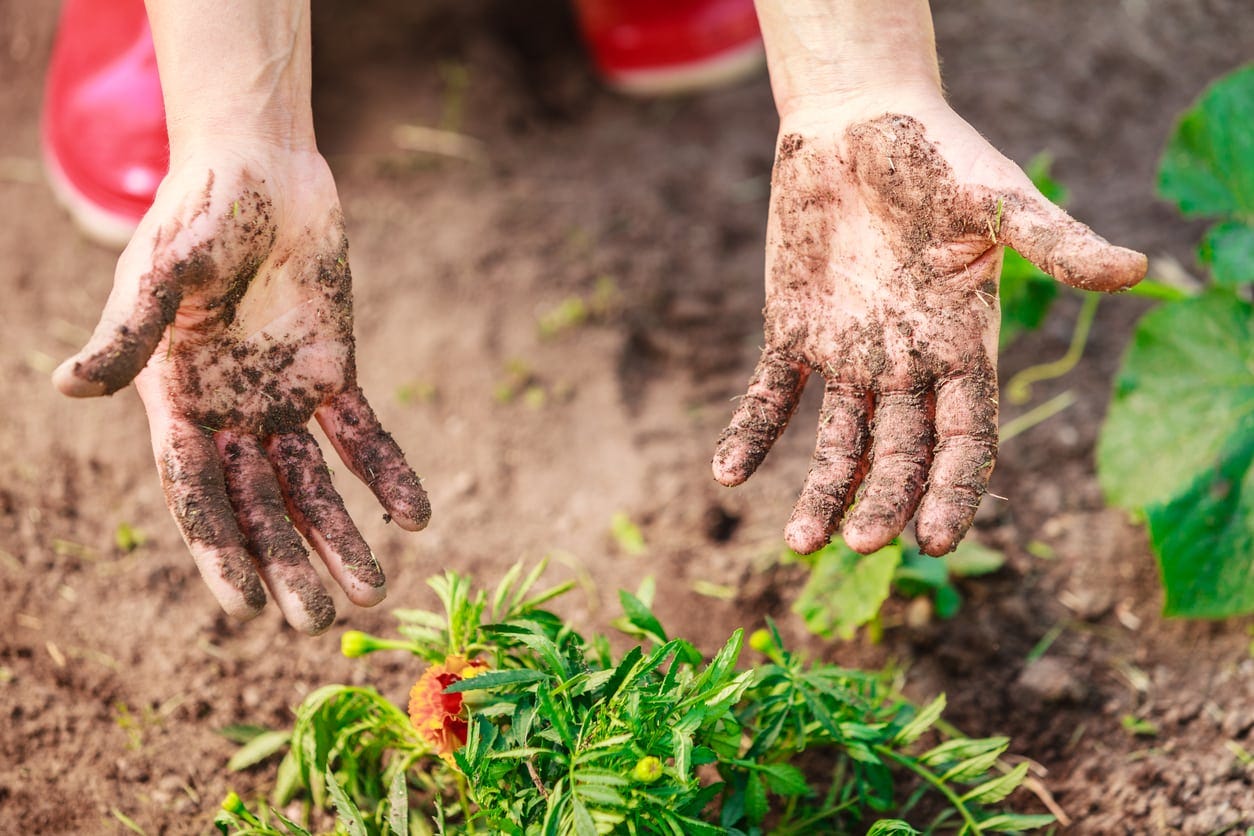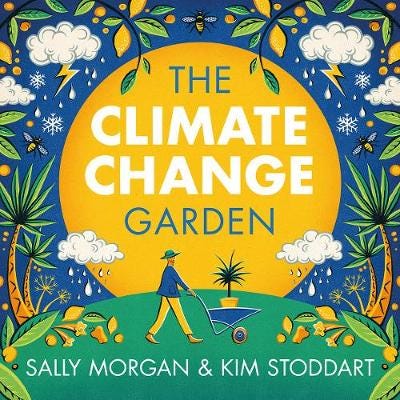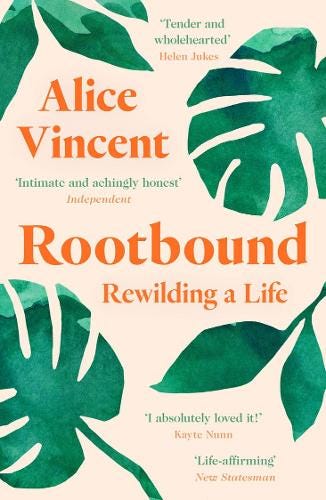🌱 The Grumpy Optimists #41
As we tuck into the festive roast spuds, sprouts, turkey or Terry's choccy orange (take your pick), let's talk about how to adapt farming and gardening to climate change!
Happy Monday 👋
It’s only 5 sleeps until Christmas! Wherever you are, we hope that you’re feeling the festive spirit! It’s been a difficult week - just when we thought Christmas this year couldn’t get tougher than 2020, Covid struck again. It might be far from the build-up we were all hoping for, but we hope that wherever you are that you’re able to spend some time with loved ones over the next few weeks. It’s been a challenging year for us all but we’ve helped each other through it, and we’re stronger for it. We’ll be leading by example and taking some much needed time off over the next few weeks. But don’t you worry, we’ll be back in 2022 - and we’ve got some big things planned, so get excited!
But first, let’s get stuck into our final newsletter of 2021.
On behalf of all the Grumpy Optimists, we wish you a very Merry Christmas and a Happy New Year! Take care and see you in 2022 💚
👀 Articles to read
🧠 Will climate change have a greater impact on neurologically diverse people? A joint editorial published by over 200 medical journals suggests rising global temperatures may lead to worsened symptoms of neurological disorders and result in higher hospitalization and mortality rates. An important (if less well documented) strand of climate injustice.
🍔 McDonald’s new net zero carbon restaurant is vintage greenwashing. Last week, you’ll remember we spotted a large beef-shaped hole in McDonald’s sustainability plans. Sadly, the new net zero carbon restaurant they’ve just opened in Shropshire seems like more of the same. It might be running off solar panels, but meat and dairy remain front and centre on the menu. Check out the video below for some top-notch ‘McGreenwashing,’ as Greenpeace are calling it.
🏠 How can you make your home more energy efficient when you’re renting? When you’re not a homeowner and your landlord doesn’t isn’t interested (like most of them, let’s be honest) it can be easy to feel powerless about how to reduce the environmental impact of running your home. Campaign groups representing renters and landlords say more action is needed to drive improvements if the UK is going to meet its climate targets.
🦌 Europe’s last Indigenous peoples on the brink. The Sami have fished and herded reindeer sustainably along the border between Sweden and Norway for generations, but are struggling to adapt to climate change. Seasonal changes to snowfall are threatening the reindeers’ food supply, which in turn is threatening the livelihood of the Sami.
On a lighter note...
🦎 Indigenous groups in Peru and Ecuador are planning to protect 80% of the Amazon. The global campaign to protect 30% of land and ocean by 2030 (”30 by 30”) does not go far enough. In response, several Amazonian Indigenous federations are partnering up with the Rainforest Foundation US and Pachamama Alliance to protect 80% (or 86m acres) of the Amazon in a momentous plan called The Amazon Sacred Headwaters Initiative. The hope is to strengthen their autonomy in managing this crucial ecosystem, as they have for generations, and deliver much needed connectivity and preserve habitats for endangered species.

🌾🍎How to keep growing as our climate is changing 🥬🥕
Climate change impacts - from weather extremes to pests and diseases spread - are being felt worldwide. We take a look at how individuals are revolutionising their farming and gardening practices to keep up with climate change.
Managing water, wind and wacky weather across the pond: Central Illinois organic farmer Henry Brockman has had to throw traditional practices out the window and think creatively in order to make his 20-acre farm resilient to climate change. The area he farms is well known for its lush soils and glacial landscapes. However, a local average temperature change of 1-2 degrees Celsius over the past decade has seen what Henry describes as “global weirding”. This swings between a 40% rise in 2-inch rain days, to elevated evaporation rates during periods of prolonged dryness and heat. This variation has rendered crops more susceptible to pests, and yields threaten to drop by 10-50% by 2050.

Henry is determined to keep the farm resilient and sustainable both for his current community and future generations. His wider family also farm, and their efforts are documented on their communal blog, Brockman Family Farmers. He has been experimenting with vegetable and fruit varieties whose root systems help maintain soil structure in the face of erosion, such as pawpaws, gooseberries and hazelnuts. Species such as sorghum sudangrass provide much needed mulch to protect soil moisture during dry spells, whilst boosting soil carbon. He has also adopted permaculture and agroforestry techniques by planting a perennial forest on his land. Trees provide shading and cooling during heatwaves, whilst also taking up rainwater and providing soil stability during floods. You can even find him watering his tomatoes in the dead of night, so the water sinks further into the soil l than if he watered in the heat of the day.
If you’re finding yourself rooting (whey) for Henry’s work and don’t fancy watching Love Actually for the 5th time this festive season, take a look at his award-winning documentary, Seasons of Change:
A little closer to home, Kim Stoddard gives us handy hints on how to adapt gardening methods as the UK increasingly faces the effects of climate change. Having moved to the wet, wild and windy landscape of Wales, Kim has learned a lot about how a changing climate sometimes means throwing out the traditional gardening rulebook. You don’t need to live in the valleys to benefit from her tips though. Whether you have a fully-fledged garden, a balcony or a windowsill, Kim has some advice for you.
A particularly delightful recommendation is her urge for people to get a bit more grubby. Stick your fingers right into the soil to tell whether your houseplants and garden plants need watering. Not only does this help you get a sense of your plant's needs, but according to a study by University College London and Bristol university, touching soil and its bacteria (Mycobacterium vaccae) acts as a wonderful antidepressant and boosts your gut microbiome.

Speaking of soil, Kim highlights the benefits of making your own compost rather than using chemical fertilisers. The latter makes your plants less resilient, as fertilisers act like “fast food” and bypass all the natural processes and symbiotic relationships your green friends have with decomposers like worms and fungi. She also encourages us to get creative, using wellies and tyres as planters or saving the pips, stones and seeds from your supermarket fruit to germinate. Just don’t forget to pick species that are suitable to your situation and climate. She also recommends The Woodland Trust to source more resilient and heritage varieties of fruit trees. Most of all, her advice is to have a go, learn from your mistakes and use trial and error. After all, in a changing climate, what worked 10 years ago, or even last year, might not be what works this season.
Curious for more? Kim has co-authored a book with fellow green-fingered legend Sally Morgan all about adapting gardens to climate change. You can find it here, and from other retailers like Waterstones.

Another book to check out is Rootbound by Alice Vincent. Alice has been a gardening columnist at several National newspapers, including The Telegraph and New Statesman, and Rootbound is her first novel. It’s a memoir about how she found fulfilment in gardening, and all through experimenting with growing various plants on her London balcony. The book goes through the seasons and is full of tips and tricks, interspersed throughout the memoir. It beautifully highlights how resilient plants are, and how they grow in the most unlikely of places - like buddleia growing all over cities in the crevices of buildings. It’s an inspirational and compelling read and will encourage any of you to start gardening - even if all you have is a window box. Check it out below. Alice Vincent is also on Instagram @noughticulture.

As we head towards Christmas, it’s not too late to plant your bulbs for spring! Have a go and let us know how you get on in the comment section!
That’s all from us this week! We hope you have a wonderful Christmas and New Year. We’ll be back in 2022 with more - let us know what you’d like to hear about in the new year!
The Grumpy Optimists 💚


